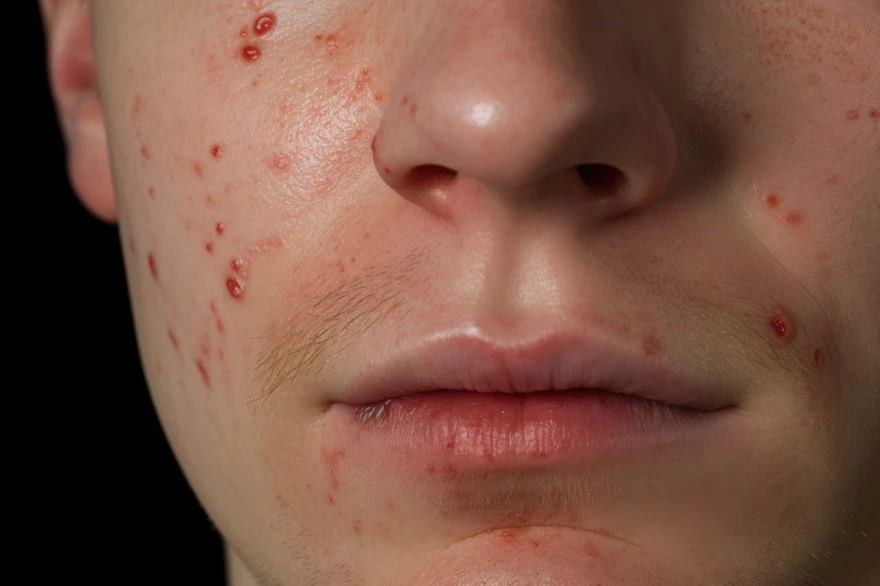Preventive Healthcare
Galactorrhea: Understanding Unusual Milk Production and Its Causes
35 Views
0

What is galactorrhea?
Galactorrhea is a condition characterised by the production of milk or a milky nipple discharge in individuals who are not pregnant or breastfeeding. The discharge can be from one or both breasts and may be constant or intermittent. It's important to note that galactorrhea is not a disease itself but rather a symptom of an underlying condition that needs to be identified and addressed.
Who does it affect?
Galactorrhea can affect women, men, and even newborn babies. It is most common in women, including those who have never had children or who have gone through menopause. In men, galactorrhea is often associated with hormonal imbalances, such as testosterone deficiency. Newborns can also experience temporary galactorrhea, known as "witch's milk," due to exposure to high maternal estrogen levels during pregnancy.
How common is galactorrhea?
While the exact prevalence of galactorrhea is not well-documented, it is considered relatively rare. However, it can occur in up to 5% of neonates as "witch's milk."
What are the causes of galactorrhea?
Galactorrhea causes are often related to increased levels of prolactin, a hormone produced by the pituitary gland that stimulates milk production. Some common galactorrhea causes include:
- Medications: Certain drugs, such as sedatives, antidepressants, antipsychotics, high blood pressure medications, and opioids, can increase prolactin levels.
- Pituitary gland issues: Pituitary tumours (prolactinomas), non-prolactin-secreting pituitary tumours, and infiltrative disorders of the pituitary stalk/hypothalamus can lead to hyperprolactinemia.
- Systemic diseases: Conditions like hypothyroidism, chronic kidney disease, spinal cord injury, and an underactive thyroid can contribute to galactorrhea.
- Hormonal imbalances: High estrogen levels, as seen in pregnancy or ovarian hyperstimulation syndrome, can also cause galactorrhea.
- Physical stimulation: Excessive breast stimulation, such as during sexual activity, can trigger galactorrhea.
- Idiopathic galactorrhea: In some cases, the cause of galactorrhea cannot be determined, and it is termed idiopathic galactorrhea.
What are the symptoms of galactorrhea?
The primary symptom of galactorrhea is a milky nipple discharge that may be constant or intermittent and can occur from one or both breasts. The discharge may be spontaneous or manually expressed.
Other galactorrhea symptoms in women can include absent or irregular menstrual periods. If a pituitary tumour is present, headaches or vision problems may also occur.
Is galactorrhea life-threatening?
While galactorrhea itself is not life-threatening, it can be a sign of an underlying condition that may require medical attention. For example, pituitary tumours or systemic diseases need to be addressed to prevent complications. If you experience persistent galactorrhea symptoms, it's important to consult a healthcare professional for proper diagnosis and treatment.
Does galactorrhea cause weight gain?
Galactorrhea does not directly cause weight gain. However, some underlying conditions that lead to galactorrhea, such as hypothyroidism or certain medications, may contribute to weight changes.
Is galactorrhea actually milk?
Yes, the discharge produced in galactorrhea is milk or a milky substance from the breast. The presence of milk can be confirmed through a Sudan IV stain for fat droplets. However, it's important to note that galactorrhea is not the same as the normal milk production that occurs during pregnancy and breastfeeding.
Can newborn babies get galactorrhea?
Yes, newborn babies can experience temporary galactorrhea, known as "witch's milk," due to exposure to high maternal estrogen levels during pregnancy. This condition usually resolves on its own within a few weeks after birth and does not require treatment.
Can men get galactorrhea?
Although less common than in women, men can indeed experience galactorrhea. In men, galactorrhea is often associated with testosterone deficiency (male hypogonadism), which can also lead to breast enlargement (gynecomastia), erectile dysfunction, and a lack of sexual desire.
How is galactorrhea diagnosed?
Diagnosing galactorrhea involves several steps:
- Medical history: Your doctor will take a detailed history of your medications, symptoms, and menstrual irregularities (in women).
- Physical examination: A thorough examination of the breasts will be performed to check for masses or other abnormalities.
- Laboratory tests: Blood tests to measure prolactin and thyroid-stimulating hormone (TSH) levels may be ordered.
- Imaging: If a pituitary lesion is suspected, an MRI of the head may be recommended. Mammography, ultrasonography, or ductography may be performed if breast abnormalities are suspected.
How is galactorrhea treated?
Galactorrhea treatment focuses on addressing the underlying cause.
- If medications are contributing, your doctor may suggest discontinuing or adjusting them.
- For cases linked to conditions like hypothyroidism, hormone replacement may be prescribed to restore balance.
- If a pituitary tumour is identified, options may include medication such as bromocriptine or cabergoline to lower prolactin levels.
- In cases where medication isn't effective or if the tumour is large, surgery may be recommended to remove it.
- Lifestyle changes, like reducing stress and avoiding breast stimulation, may also help reduce symptoms.
Your healthcare provider will create a galactorrhea treatment plan personalised to your condition, considering factors like the severity of symptoms and overall health. Regular follow-ups are essential to monitor progress and adjust treatment if necessary, ensuring the most effective management of galactorrhea.
What complications are associated with galactorrhea?
While galactorrhea itself is not harmful, it can be a sign of underlying conditions that may lead to complications if left untreated. These can include:
- Pituitary tumours, which can cause headaches, vision problems, and hormonal imbalances
- Osteoporosis, if hyperprolactinemia is prolonged and untreated
- Infertility, as high prolactin levels can interfere with ovulation in women and testosterone production in men
How long can galactorrhea last?
The duration of galactorrhea varies depending on the underlying cause. In some cases, such as with medication-induced galactorrhea, the condition may resolve once the offending drug is discontinued. However, if galactorrhea is caused by a pituitary tumour or other chronic condition, it may persist until the underlying issue is effectively treated.
Can galactorrhea be prevented?
Preventing galactorrhea isn’t always possible, but you can reduce risk by informing your doctor of medications, attending regular check-ups to monitor hormonal health, and avoiding excessive breast stimulation. Discuss preventive options with your healthcare provider if at risk.
What are the risk factors for galactorrhea?
Risk factors for galactorrhea include certain medications, pituitary disorders, hormonal imbalances, breast surgery, chest radiation, and excessive breast stimulation. Recognising these can help you monitor your health and seek timely care.
What is the outlook for people with galactorrhea?
The outlook for people with galactorrhea depends on the underlying cause. In many cases, galactorrhea can be effectively managed or resolved with appropriate treatment. However, it's important to note that some causes of galactorrhea, such as idiopathic galactorrhea, may not have a specific treatment. In these cases, symptom management and regular monitoring may be recommended.
When to see a doctor?
If you experience any of the following, it's important to consult a healthcare professional:
- Persistent or bothersome milky nipple discharge
- Nipple discharge that is bloody or clear
- Breast pain, lumps, or changes in breast shape or size
- Headaches or vision problems
- Irregular menstrual periods or difficulty getting pregnant
Conclusion
Galactorrhea can be a confusing and concerning condition, but with the right information and medical guidance, it can be effectively managed. Remember, if you experience any unusual breast discharge or related symptoms, don't hesitate to consult a healthcare professional for personalised advice and care.
At Metropolis Healthcare, we understand the importance of accurate diagnosis and personalised treatment plans. Our team of highly skilled pathologists and state-of-the-art diagnostic facilities, including home services, are here to support you on your journey to better health.
 Home Visit
Home Visit Upload
Upload













1701259759.webp)









 WhatsApp
WhatsApp